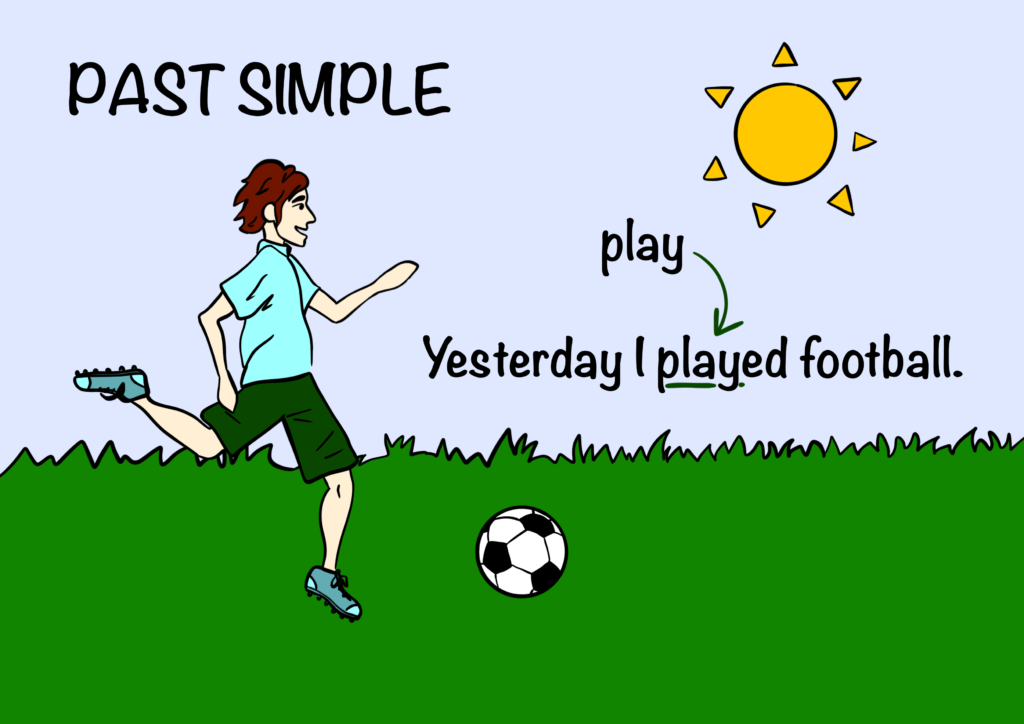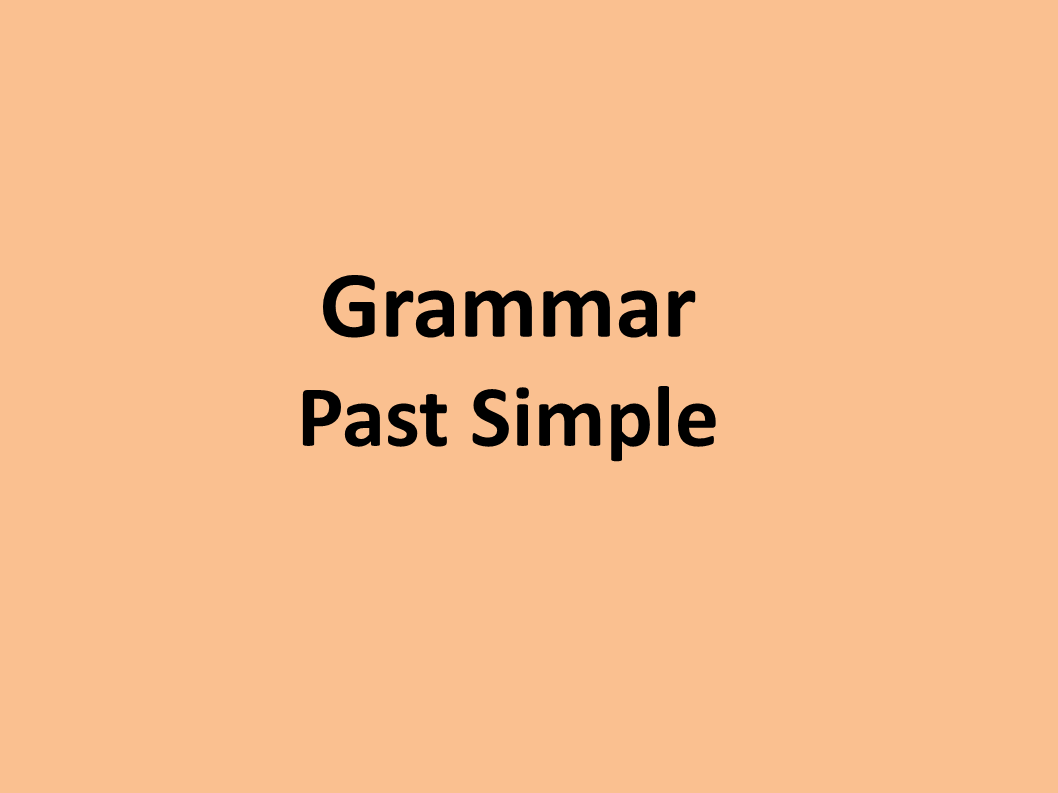- It is used when we want to talk about something that happened or existed in the past, and such action is finished.
- We usually add suffix -ed, -d (walk -> walked, love -> loved), or we use the suitable form of the irregular verb (do -> did, go -> went)
- Some consonants are doubled: stop -> stopped, travel -> travelled
- When we ask, we have to use did at the beginning of the sentence, the core verb remains the basic form:
Did you do it? -> Yes, I did it. x No, I didn’t do it.
NO: Did your parents visited the theatre?
- When we create a negative sentence, we have to use the auxiliary didn’t or did not; the core verb remains the basic form.
I didn’t see the film.
She did not finish her homework.
NO: She didn’t cleaned her room.
- The verb to be has a specific form (was/wasn’t/was not – I, he, she, it; were/weren’t/were not – you, we, they).
I was there. – I wasn’t/was not there. – Was I there?
You were there. – You weren’t/were not there. – Were you there?
Use of Past Simple:
- Something that happened or existed in the past, and it is finished, simple statements:
She had a wonderful house by the beach.
Ben took the train to get there.
I lived in New York.
I played football yesterday.

- Hypothetical situations in present or future:
If I had more free time, I would try knitting.
If she knew the book, she could discuss it with us.
- Several actions that finished (we use it when describing the past, storytelling):
I came home from work, ate dinner and went to sleep early.
When my parents returned from holiday, they called their friends.
- Repeated actions in the past and habits:
When Bob was little, he played volleyball every Friday.
- Polite questions and requests in the present:
Could you take care of Mary and Joe?

- Specific words – yesterday, ago, last night/week/month/year, last Wednesday.
Last Monday, I went to see my doctor.
We cooked dinner yesterday!

